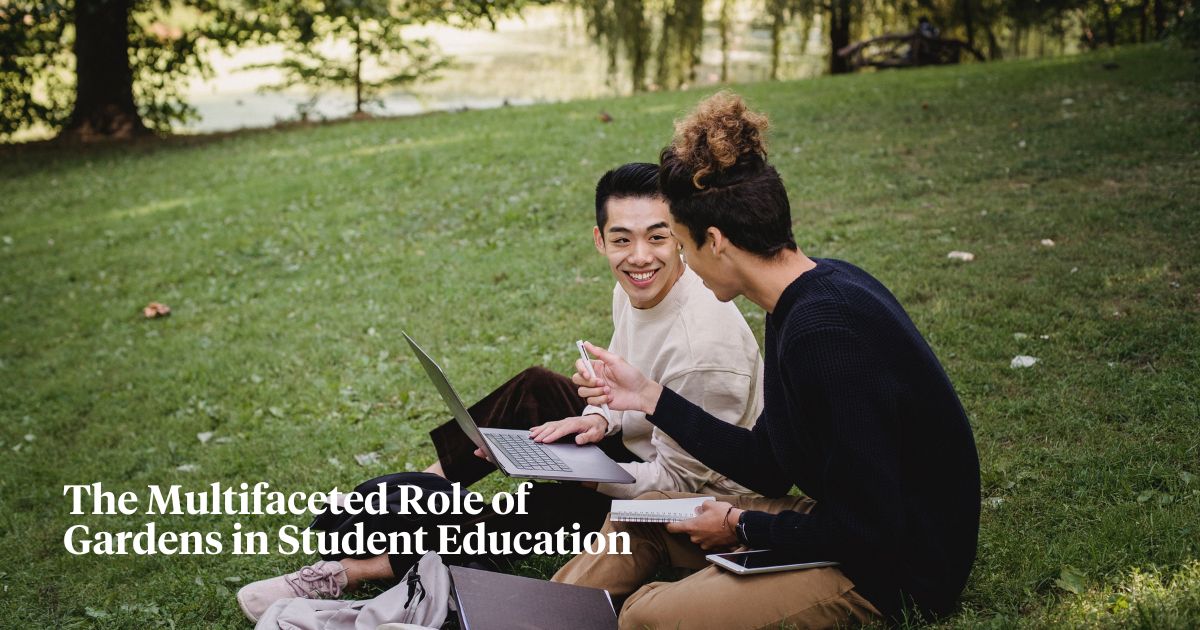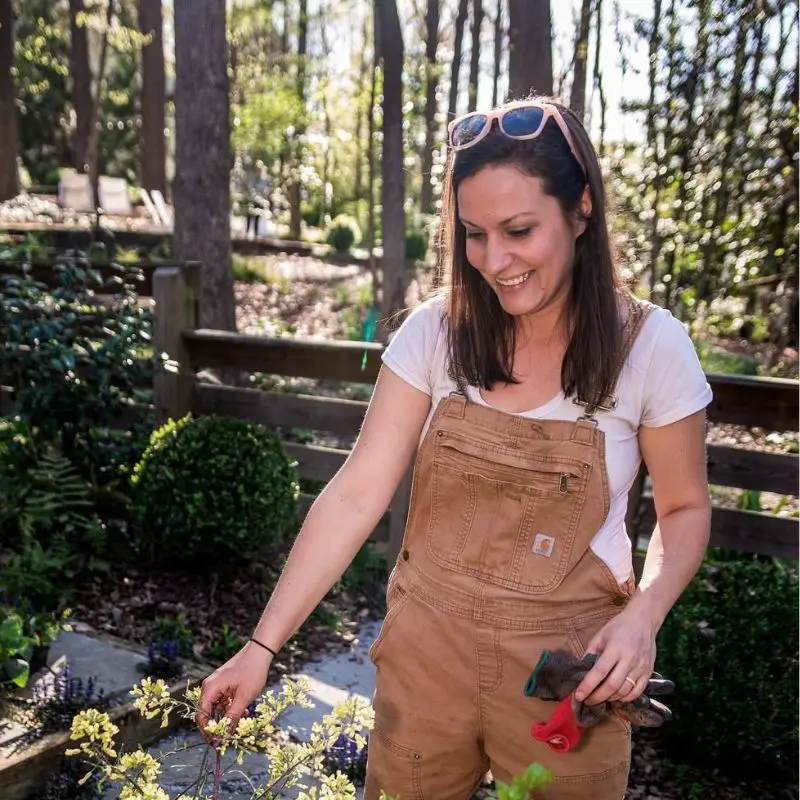In the bustling corridors of schools and the intense focus on digitized curriculum, the importance of nature, more specifically gardens, often takes a back seat. However, gardens have been increasingly recognized for their profound impact on student education. From teaching subjects like biology and environmental science to instilling values of responsibility and patience, gardens play an instrumental role in shaping the holistic development of a student. This article aims to shed light on the multifaceted role of gardens in student education.

Tangible Lessons in Science and Environment:
One of the most direct educational benefits of gardens is their capacity to serve as live laboratories. Students can observe the lifecycle of plants, understand photosynthesis in action, and recognize the various factors influencing plant growth. Such hands-on experiences make abstract concepts more relatable, thereby solidifying a student's understanding. For instance, by noting the differences in plant growth under varying amounts of sunlight, students can genuinely grasp the concept of photosynthesis.
Instilling Responsibility and Patience:
Maintaining a garden requires regular attention, care, and patience. When students are assigned the task of tending to plants, they learn the value of responsibility. They come to understand that consistent efforts, like watering and pruning, will lead to flourishing plants. Similarly, gardens teach patience. In today's world of instant gratification, waiting for a seed to sprout and grow imparts the invaluable lesson that good things often take time.
Enhancing Cognitive and Motor Skills:
Gardening is more than just a physical activity; it's an exercise for the mind and body alike. Numerous research studies have highlighted the cognitive benefits of gardening, linking it to improved concentration, memory, and even problem-solving abilities. The tasks associated with gardening, such as seeding, transplanting, watering, and weeding, require students to engage in a variety of thought processes.
For example, deciding where to plant certain flowers based on sunlight needs or figuring out the optimal watering schedule involves strategic thinking. On the motor skills front, gardening offers numerous opportunities for refinement. Young students, especially, benefit from activities like holding a watering can, using a spade, or pinching off dead leaves.
Boosting Mental Well-being:
In today's high-paced academic environment, students often grapple with stress, anxiety, and the pressures of performance. Gardens emerge as tranquil havens amid this chaos. The simple act of immersing one's hands in the soil, tending to plants, and being enveloped by calming greenery and floral fragrances have been scientifically proven to have therapeutic effects. This connection with nature, often termed 'grounding', helps to reduce cortisol levels, the body's primary stress hormone. Additionally, as students invest time and effort into their gardens, they witness the fruits of their labor in the form of blossoming flowers and thriving plants.
Along with working with plants, you can use the write my paper for me cheap to free up time and reduce stress. It will enable you to concentrate more on your favorite assignments and achieve academic success.

A Platform for Social Learning:
Gardening, by its very nature, encourages community involvement and cooperation. When students engage in gardening activities, they often work in teams, where they must delegate tasks, make collective decisions, and solve problems in unison. These situations offer an ideal environment for developing team spirit, learning the intricacies of negotiation, and resolving conflicts. Additionally, as students come together to tend the garden, they share experiences, stories, and perspectives. It fosters a deeper understanding and appreciation of diverse backgrounds and cultures.
Real-world Math Applications:
Gardens, while primarily associated with biology or environmental science, are treasure troves for mathematical exploration. The tasks involved in maintaining a garden weave naturally in numerous math concepts. Whether it's measuring the growth trajectory of a plant, calculating the area designated for a particular set of plants, or estimating the water and fertilizer quantities, each activity challenges students to apply their mathematical knowledge. Furthermore, predicting harvest yields or charting plant growth rates over time introduces students to data analysis and statistics.
Furthermore, consider exploring the assist in essay writing apps available for you during your study period. These apps will not only provide you with extra knowledge but also support you in excelling in your studies. Leveraging these resources can be a great way to enhance your academic experience.
Encouraging Environmental Stewardship:
The act of tending a garden immerses students in nature, offering them firsthand experiences of the beauty and complexity of the natural world. As they nurture plants from seeds to flourishing organisms, they gain a deeper appreciation for the intricate balance that sustains life. This intimate connection with nature heightens their awareness of environmental fragility, emphasizing the importance of sustainable practices and conservation. With every planting session or composting lesson, students internalize the values of recycling, reusing, and reducing.
Cultural and Historical Insights:
Gardens can also be a gateway to understanding different cultures and histories. By planting diverse plants native to various regions or significant in certain cultures, educators can impart lessons on world geography, history, and cultural significance. For instance, planting a Chinese bamboo tree can segue into discussions about Chinese landscapes, history, and the cultural importance attached to bamboo.
Nutritional Education and Healthy Habits:
School gardens, especially those that produce fruits and vegetables, become the perfect platforms for nutritional education. Students can learn about the benefits of different vegetables, understand the farm-to-table concept, and appreciate the value of fresh produce. When students have a hand in growing their food, they're also more likely to consume it, fostering healthier eating habits.
Fostering Creativity and Imagination:
Gardens, beyond their botanical wonders, serve as expansive canvases that stimulate the human imagination and creative spirit. Planning a garden compels students to merge creativity with critical thought, considering both the aesthetic allure and the practical growth patterns of plants.
This verdant setting becomes an artistic muse, prompting students to capture its essence through drawing, painting, and photography while simultaneously encouraging detailed observation and mindfulness. These green patches inspire rich narratives, where students can craft stories surrounding the plants, birds, and insects they encounter, honing their imagination and linguistic skills.
Conclusion:
Gardens, often seen just as patches of greenery, hold the potential to revolutionize education. They transform teaching from a one-dimensional, textbook-focused approach to a multi-dimensional, experiential one. In the embrace of nature, students not only learn academic lessons but also life lessons of patience, responsibility, and appreciation. As educators and institutions worldwide grapple with the challenge of holistic education, it is time to turn to gardens as an integral part of the curriculum.










